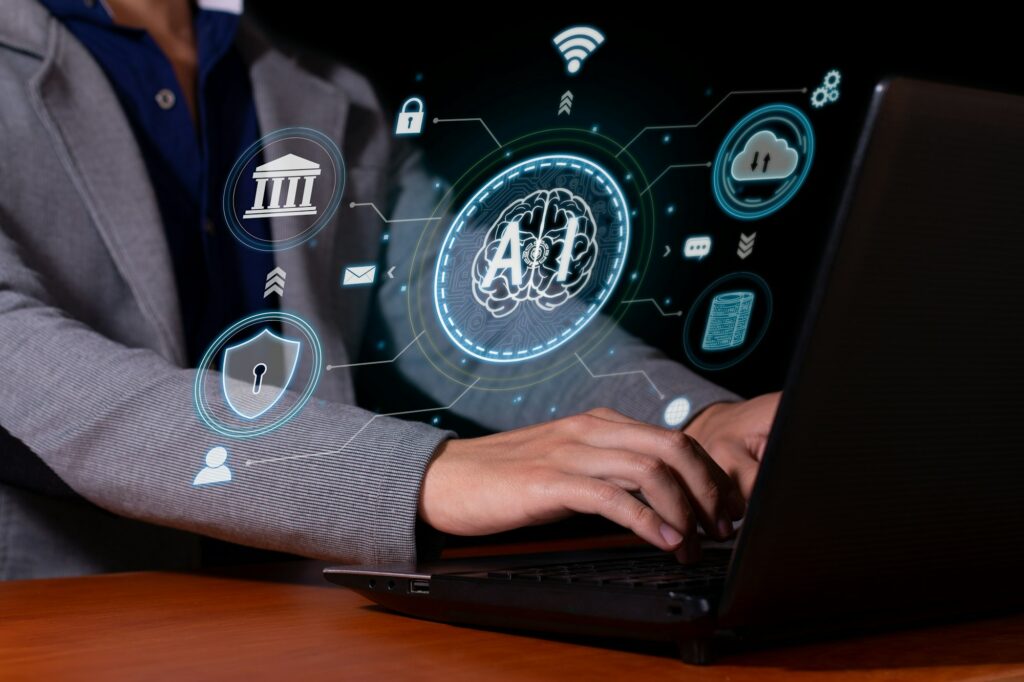There’s no hiding that the arrival of Artificial Intelligence in recent years has brought a seismic shift in how we work, particularly in the freelance sectors. Professionals working for themselves, who constitute a significant portion of the global workforce, especially in the age of digital nomads, are finding themselves at the forefront of a technological revolt—and not on the winning side.
I’ve noticed a trend around the conversation of AI in the workforce. It usually follows the idea that the AI takeover is in the future. However, I’m here to tell you that the future is significantly closer than you and most people might think.
In this article, we’ll examine freelance professionals’ vulnerability in the new age of AI and discuss just how severe the effects will be, and what you might do as a freelancers to help prevent yourself from becoming a victim.
Who is the freelance workforce?
Before we delve into the consequences, who is the freelance workforce?
They might be a significantly more significant contributor to the world economy than you might think.
From writing and translation to customer service, graphic design, and individual talent, freelancers bring flexibility, innovation, and efficiency to a work market that even the most prominent companies take advantage of.
For these freelancers, this is their primary source of income, and it provides them with the freedom to work on their terms and the opportunity to pursue their projects.
The rise of freelancers spiked massively during COVID-19 when it became apparent how much work can be done from the comfort of one’s home and office—without the grueling surveillance of a boss or manager.
I can guarantee that the freelance market is significantly larger than you think. Did you know that over 40% of U.S. Gen-Z and millennials engage in freelance work? In the same demographic, 14% have already reported losing their jobs to AI.

Why freelancers specifically?
Freelancers will be some of the first primary victims of the AI revolution because their jobs typically don’t let them pivot into AI-resistant sectors. Their talents are built explicitly on the human condition, and as a result their experience doesn’t translate as well as in other jobs.
One of the main arguments I hear when I bring up the concerns around AI is that “AI will take jobs, but it will create more”—yet this doesn’t apply to most freelancers. The jobs don’t follow the same trajectory as before.
In Charlie and the Chocolate Factory (the Johnny Depp version, sorry), Charlie’s dad goes from having his job as a toothpaste cap placer taken away by robots to fixing those robots.

This does not translate to a vast, vast majority of freelance careers.
As AI technologies advance, the challenge we face as a global workforce goes beyond replacing work trajectories. How can we possibly leverage AI efficiency and still preserve the irreplaceable value of human creativity and empathy?
So, what is the immediate impact of AI on freelancers?
They’re simply going to lose their job.
Previously, companies could hire talented human freelancers to do work they couldn’t fulfill within their companies. Smaller businesses and content creators could lean on talented humans to fill the gaps.
Instead of paying worthy people with human experience and empathy, they can go to ChatGPT, copy and paste, and call it their own.
Artificial Intelligence is given more and more responsibilities – to the point where we no longer rely on people. Then what?
For anyone thinking that this is the natural course of human innovation and technology, let me tell you why this case is different:
AI trains on itself.
The internet is increasingly littered daily with AI content (often wrongfully marked as human content). New versions and models of Artificial Intelligence then train future work on those very articles—like an infinite loop of AI BS, which I urge you to read more about here.

What can I, as a freelancer, do to prevent this?
Central to the global economy, Freelancers are now facing an uncertain future. As machines begin to replicate the tasks traditionally filled by human creativity and empathy—like writing, customer service, and translation—the immediate effect is not just job displacement but a fundamental questioning of the value we place on human experience within the workforce.
The reality is that a significant portion of Gen-Z and millennials have already felt the cold, algorithmic hand of AI in their careers, and this is only a year and a half after the launch of ChatGPT.
As a result, we urge all freelancers to take a stance against AI and market themselves less as numbers on a screen and more as humans who provide empathetic and human services.
Regardless of your job, you must market yourself as human to show possible clients the value you provide. Why can you do a better job than AI? I promise you that you do.
Additionally, we urge freelancers to use any of our completely free NO-AI badges on their work or website to show that YOU do the job – not AI.
This shows Google, potential clients, employers, and partners that you don’t rely on regurgitated soulless machines to do the work for you.
Let human work be human, and say no to AI.